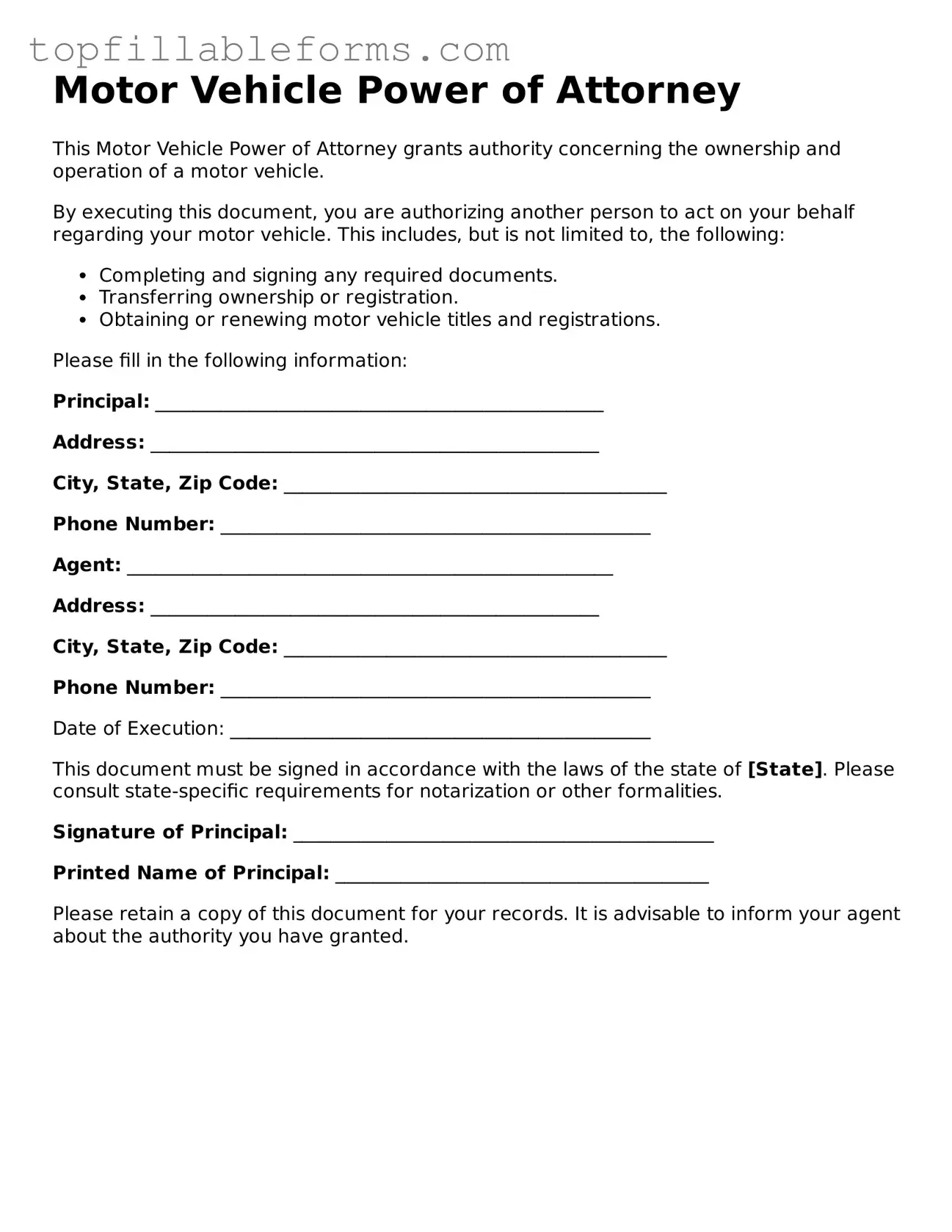Free Motor Vehicle Power of Attorney Form
The Motor Vehicle Power of Attorney form allows an individual to authorize another person to act on their behalf regarding motor vehicle transactions. This document is essential for facilitating tasks such as title transfers, registration, and other vehicle-related matters. Understanding how to properly complete and utilize this form can simplify the process of managing vehicle ownership.
Open Motor Vehicle Power of Attorney Editor Here

Free Motor Vehicle Power of Attorney Form
Open Motor Vehicle Power of Attorney Editor Here
Finish the form now and be done
Finish your Motor Vehicle Power of Attorney online by editing, saving, and downloading fast.
Open Motor Vehicle Power of Attorney Editor Here
or
▼ PDF File
